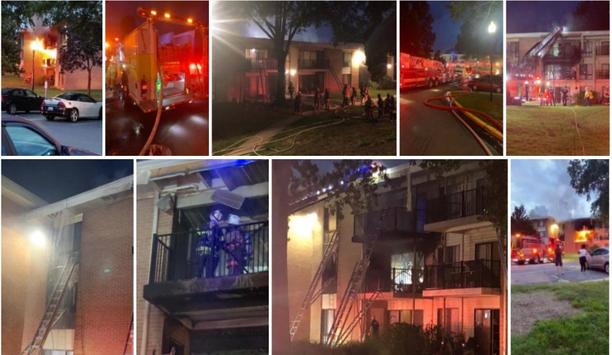Cambridgeshire Fire and Rescue Service (CFRS) has invested in new equipment to help respond to incidents. As part of a unique collaboration with the Bedfordshire, Cambridgeshire, and Hertfordshire Joint Protective Services (BCH JPS) police command, new drones are being rolled out which will assist firefighters in their response to a wide range of incidents and provide a bird’s eye view of the scene.
They will be used at incidents such as search and rescue, investigative support, large-scale fires in open, hard-to-reach locations, or complex structural fires.
The drones will help incident commanders at CFRS make decisions about the best way to deal with an incident by improving the ability to see and understand what is happening from above. This also helps to reduce risks to firefighters, the public, and other emergency services colleagues.
Three drones introduced
While drones have been a familiar sight at some incidents, they have previously been operated by the BCH JPS Operational Support Unit policing team.
As part of the project, three drones are being introduced to the Service. Initially, a drone will be based at Huntingdon fire station on the incident command unit, with a further two being introduced at stations north and south of the county in Peterborough and Cambridge.
The drones are fitted with high-definition cameras for image photography and video recording, as well as a thermal imaging camera that can detect hot spots or fire spread. The footage can be live streamed through the Good Sam app by our Fire Control, as well as on the incident ground via the incident command unit to allow incident commanders to assess the incident quicker and easier than was previously possible.
Trained remote pilots
Specially trained remote pilots from the Service will fly the drones initially during daylight hours
The BCH JPS command, who hold the Civil Aviation Authority permission to fly will have governance over the CFRS drone team, they have given training to the CFRS pilots, and will provide expert guidance as the drones are introduced to the Service.
Specially trained remote pilots from the Service will fly the drones initially during daylight hours however that will soon be extended to 24/7 cover.
Providing real benefits
Watch Commander Steve Peacock, who’s been leading on the project for the Service, commented, “The equipment will provide real benefits to us when responding to large-scale incidents. The thermal imaging camera will be able to quickly identify any heat sources and give incident commanders on the ground the information they need to deal with the incident safely, whether that’s fighting a fire, or assisting with a search and rescue.
Investing in modern technology
Head of Operational Support, Group Commander Wayne Swales added, “It’s really important to us that we invest in modern technology to improve our capability as a fire service. The aerial footage will assist us in so many ways and help keep residents, our firefighters, and other emergency service staff safer at incidents.”
“They are a fantastic piece of equipment and the project demonstrates our commitment to collaboration across blue light services, while also ensuring best value for money.”
An excellent partnership
Inspector Iain Clark from the police Operational Support Unit said: "This is an excellent partnership with our fire service colleagues and we are looking forward to a successful operational partnership in support of keeping our communities safe."
















